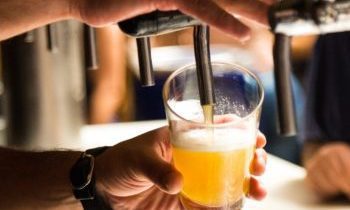Storm Éowyn curtails drinks sales revival in January
It has been a tough start to the year in the spirits category, where sales dropped by 11% and 19% in the weeks to 18 and 25 January respectively

Drinks sales in the UK fell 5% year-on-year in the seven days ended Saturday 25 January as Storm Éowyn caused people to stay at home, according to data from hospitality consultants CGA.










